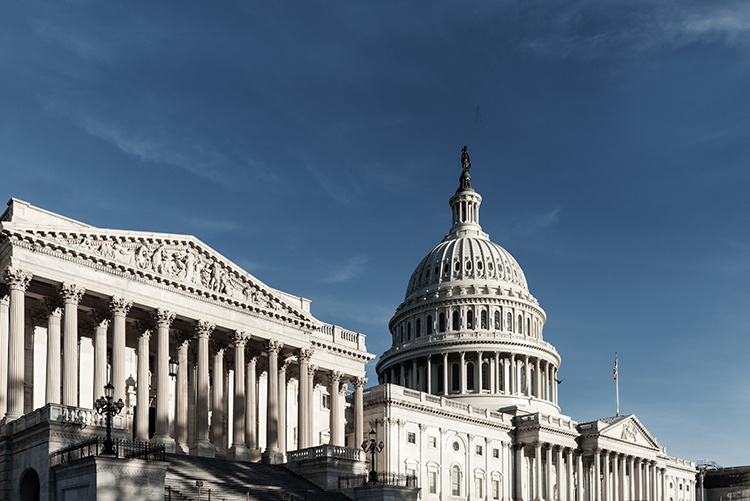
When the COVID-19 pandemic took hold in early 2020, the 2018 Farm Bill was just over one year old, with key provisions just beginning to be implemented.
Today, as the nation continues to recover from the pandemic, the House and Senate agriculture committees are reviewing current agriculture and nutrition policy. The 2018 Farm Bill expires next September, a mere 16 months away. That makes it time for the committees to start examining in earnest which areas of current policy are working well and which need serious fixing.
NMPF has a crucial seat at the table during this critical process, providing input on issues ranging from the farm safety net to conservation and trade. Last month, Michigan dairy farmer Ashley Kennedy, a member of the Michigan Milk Producers Association, told the Senate Agriculture Committee that the Dairy Margin Coverage program enacted in the last farm bill has been a vital safety net for dairy farmers during challenging times.
She urged that a tweak made to the program after the previous farm bill was passed – an adjustment to production histories that now are nearly a decade old – be carried over into the next bill. She also thanked the committee for providing dairy farmers with the same access to risk management options that other farmers enjoy.
At the same time, Kennedy said Congress needs to consider the lessons of the COVID-19 pandemic in crafting the next farm bill. In particular, she noted how a change made to the Class I mover in the last farm bill, combined with a food-purchase program that was a significant part of the pandemic response for agriculture, cost dairy farmers more than $750 million in Class I skim revenue in 2020. Kennedy informed the committee that fortunately, the dairy industry, under NMPF’s leadership, is seeking to create a consensus proposal for improvements to the Federal Milk Marketing Order system that can be taken to USDA for consideration in a national order hearing.
Pricing policies and the safety net aren’t the only topics on which lawmakers have heard directly from dairy farmers. California dairy farmer Melvin Medeiros, an NMPF executive committee and Dairy Farmers of America member, testified before the House Agriculture Committee in February to discuss sustainability in the livestock sector. Medeiros shared the significant sustainability gains dairy farmers have already made but added that enhanced funding for conservation programs, with a greater emphasis on key dairy areas of opportunity like manure management and feed management, would help take that good work even further.
Finally, farm bills contain important trade promotion programs that expand market access opportunities for producers. Last month, Krysta Harden, president and CEO of the U.S. Dairy Export Council, a close partner of NMPF on trade policy, testified before the House Agriculture Committee in support of doubling funding for the Market Access Program and the Foreign Market Development program, two initiatives that offer strong returns on the federal investment for farmers. Harden also urged the committee to include language in the farm bill to better fight the European Union’s abuse of geographical indications by using various tools to proactively defend common names, a major priority of NMPF and USDEC.
The farm bill contains many more important titles that impact dairy farmers and the families they work hard to feed every day, including nutrition, rural development, and energy. NMPF and its members are excited to continue providing Congress with the input needed to craft effective, bipartisan farm policy in the next iteration of this bedrock of federal farm policy. Each farm bill process is unique, but these current efforts to gather stakeholder feedback are essential. After all, what’s a farm bill without hearing from dairy farmers and the organizations they support?








